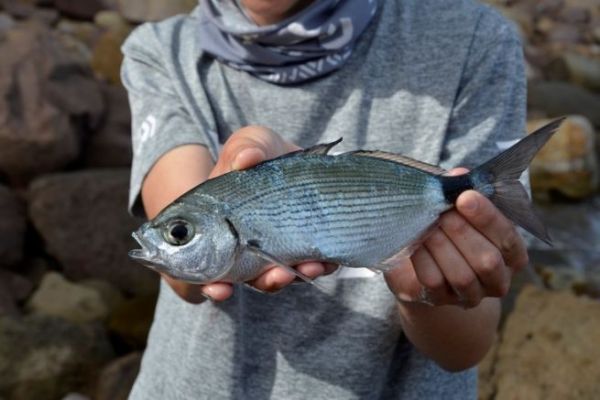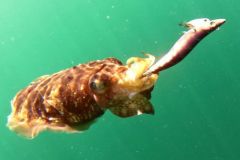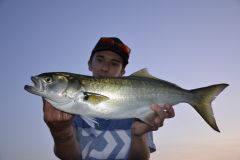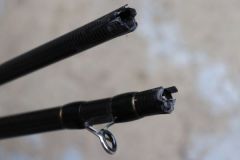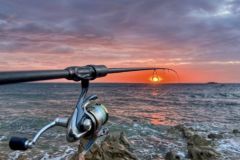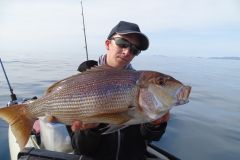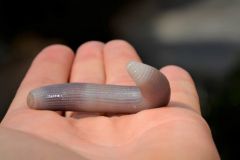The oblade (Oblada melanura) is a widespread coastal marine fish, particularly in the Mediterranean, where it is appreciated for its combativeness and ease of catching.
Oblades usually move in schools, often close to the surface or between two waters, and approach the shore as soon as the water warms up.
These fish are very active at dawn, dusk and during foamy days.
Recommended natural baits
Various marine worms such as dura, red dura and chickweed are very effective for finding oblades. They hold well on the hook and correspond to the oblade's small mouth.
Shrimps and shellfish also attract oblades. Indeed, oblades love small pieces of raw shrimp or other crustaceans.
A variety of small forage fish can also be used, as well as fragments of atherin or other anchovies, or even small fish measuring 4 to 7 cm, especially for larger specimens.
These different baits can be used with a variety of fishing techniques: jigging or float fishing, surfcasting or wedge fishing, from the shore or from a boat.
Bread and various types of pasta are also very effective. They are mainly used in harbours, especially in the Mediterranean. Bread is used in a similar way to mullet fishing, on small, fine hooks.
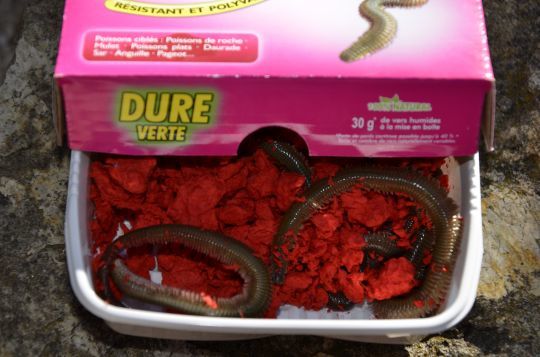
Artificial baits
Small lures: Mini-jigs, small swimming fish, soft lures, spoons and surface lures are very attractive, especially on rocky coasts and in rough seas. Throwing small lures into the foam often yields nice oblades in search of easy food.
Directions for use
- Adapt the size of the bait to the small mouth of the oblade to maximize bites.
- Use discreet, light rigs, with fine hooks and fully baited.
- Don't hesitate to bait with bread or dough to group the fish before fishing.
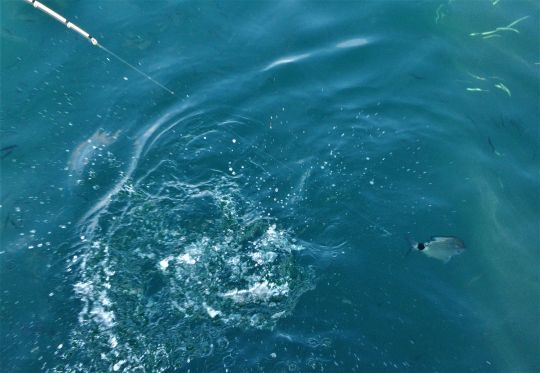
The best baits for oblade fishing are marine worms, shrimps and small fish, as well as bread and dough. Bait fishing can be complemented by the use of small lures, especially for rockfishing.

 /
/ 